This day was going to be challenging, specially since it was also the Champions League Final day.
The day started with me taking breakfast in the Trader Hotel Lounge, where I had been put up, its just next door to the KLCC so very convenient indeed. So took some pictures from the 34th floor lounge while having breakfast.
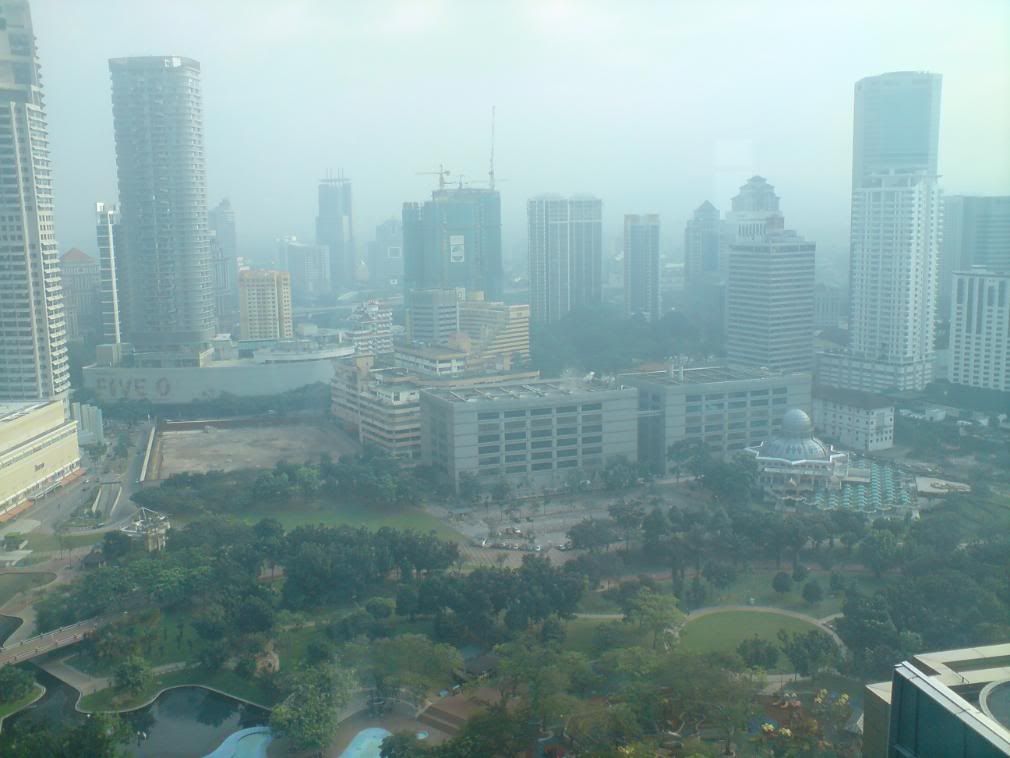
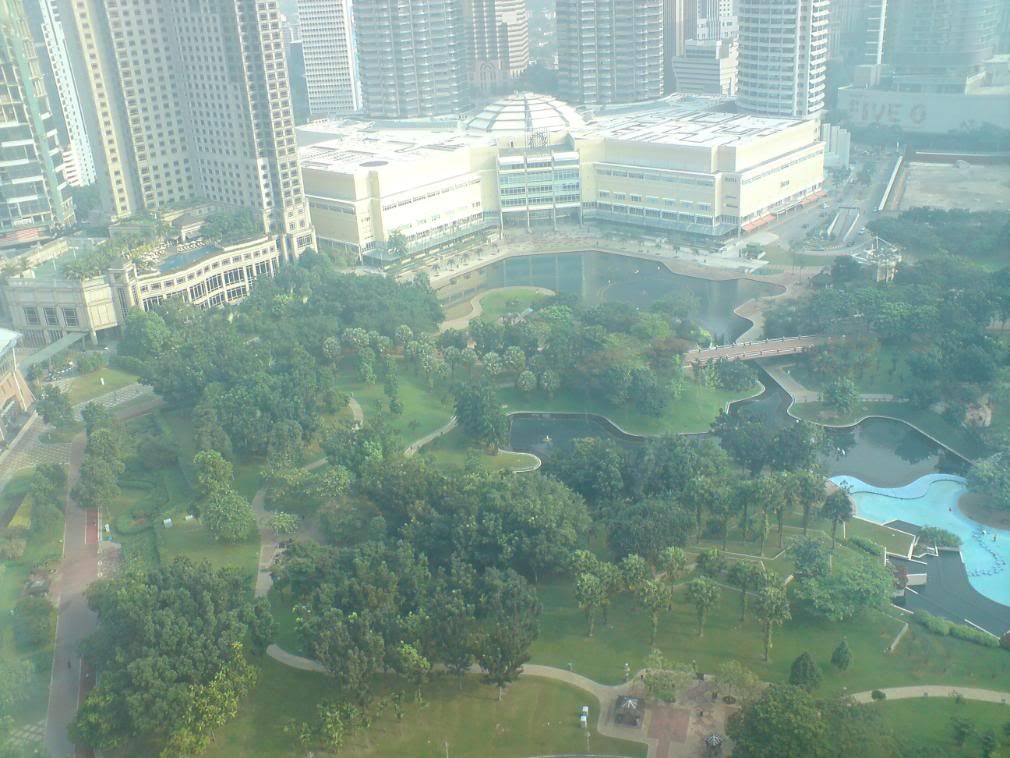
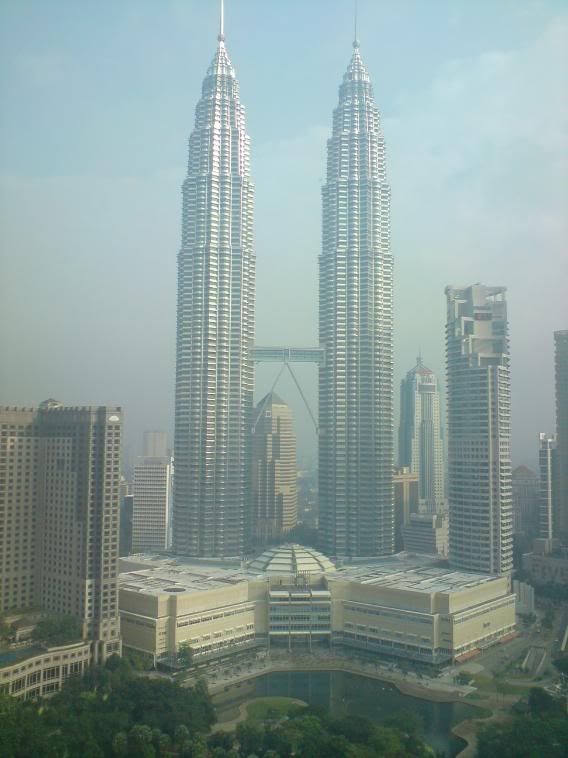 Here are the twin towers, at the base you can see the gigantic 6 story mall with two wings. It is absolutely stonkingly huge, that mall. Anyway, the twin towers, and the very well landscaped park around the buildings. The building on the left of the twin towers is the Mandarin Oriental where many other guests were also put up.
Here are the twin towers, at the base you can see the gigantic 6 story mall with two wings. It is absolutely stonkingly huge, that mall. Anyway, the twin towers, and the very well landscaped park around the buildings. The building on the left of the twin towers is the Mandarin Oriental where many other guests were also put up.
Then the programme started with two debates on the future of the Internet.
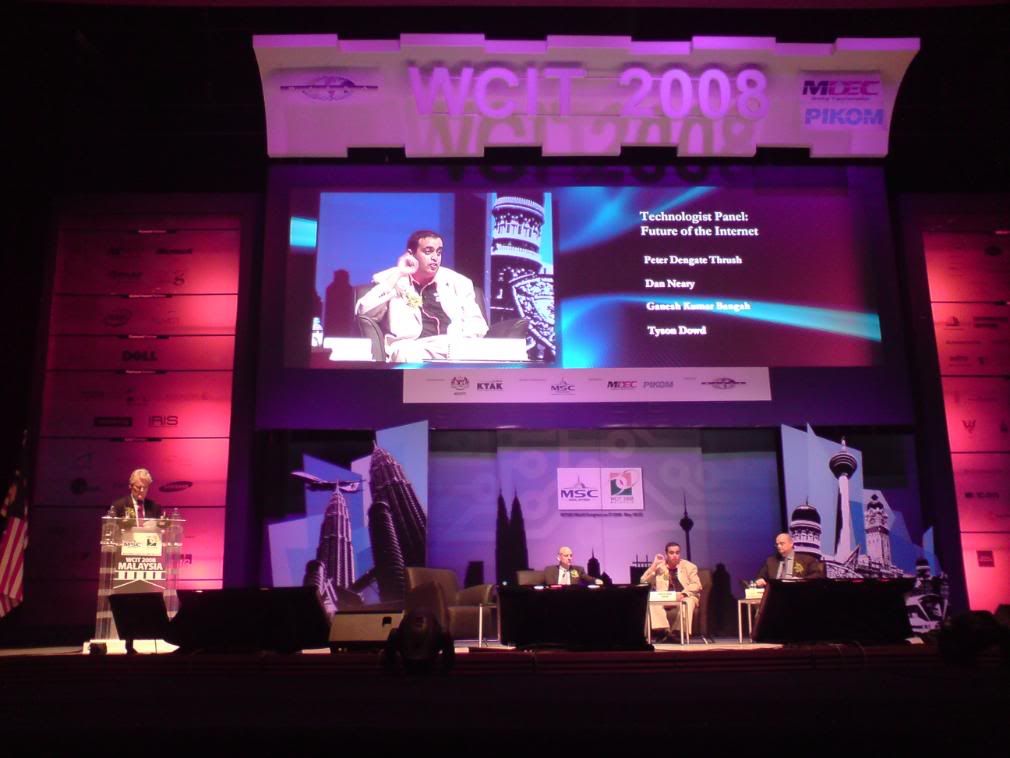
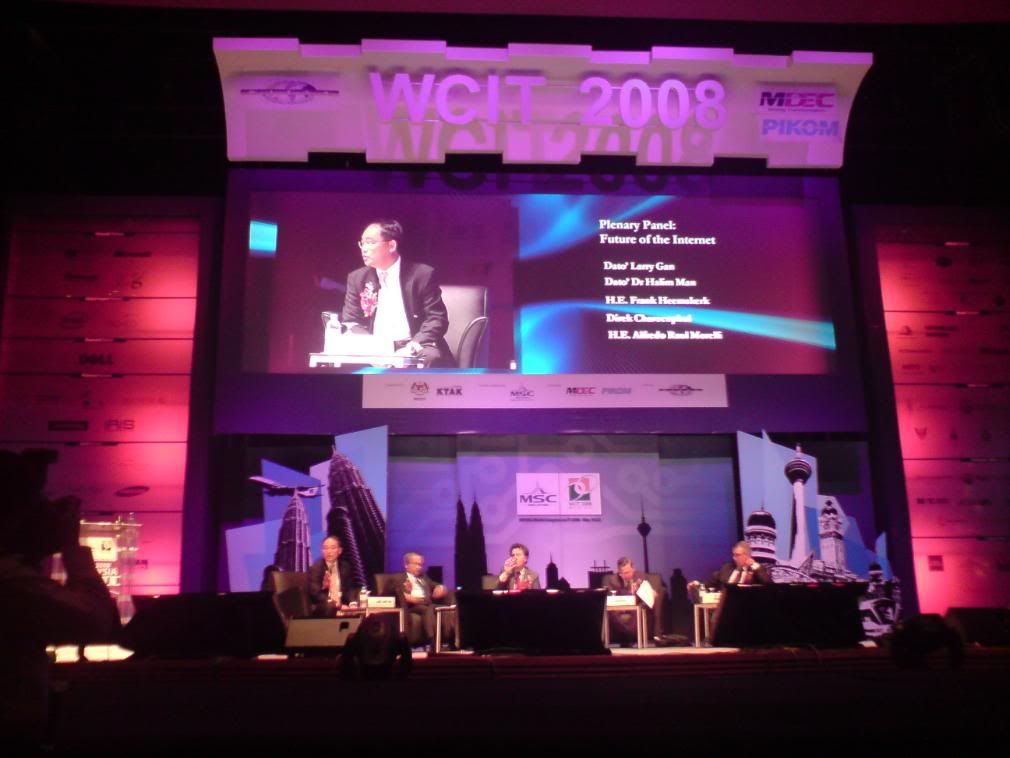
a deep discussion erupted over the net neutrality issue. To be honest, I have never really thought about it till I was forced to sit and listen to these two debates. Not that I have really ended my thoughts but the question is, who pays for the internet? It is my firm belief that nothing is free in this world, somebody will ultimately pay, either the taxpayer, stockholder, consumer, today you or tomorrow in the form of your child. Somebody has to pay. So this idea that the net is free is frankly stupid and more worryingly, it shows a childish view of the world.
Also, the idea that a communications network will or should be free is against human history. Do you think that the pigeon post was free to everybody? or the pony express allowed everybody to send stuff over? or how about the fact that letters still cost to send stuff to each other? Or the fact that we have public and private ownership over the postal system? Or the fact that we have regulations governing what can and cannot be sent over the posts? Or how about the fact that online classifieds are killing newspapers? Or how about the issue that emails are killing the postal system? So when we do not have any issues over that, why do we suddenly end up having an issue over the net neutrality aspect? Here is a good overview article. Very complicated matter, but I suspect it will end up like we have the health service. A Universal service provision which will provide some kind of a basic internet, which is slow and unreliable, while a paid for internet which is better and faster. Pretty much common compared to other industries, if you ask me.
Then there was a discussion about Silicon Valley, it started in 1940's, it took 10 years to know, 10 years to come, 20 years to investment, etc. etc. Takes a heck of a long time to start developing an industry. See what Taiwan did, took them decades to get to it but get to it they did. Now they are the champions, and almost every PC in the world has some Taiwanese components in it.
============
Next session I had to miss, then popped into the Mexico session for a few just to realise that they were talking about near shoring. I mean, d'oh, get on with the programme, people are now in the 5th generation of out sourcing and we are still in the terminology of the 1st generation. Crikey! that made me so depressed that I went back to the room and started my calls. Also had a quick bite to eat in the room itself, couldn't’get out of the calls but went back to catch the next great debate.
----------
Not much to report on other than the fact that one of the guests (I told you, lost all my notes because my stupid My Documents folder decided that it wants to forget all about my previous history and start afresh to synch...). said that the adoption of energy efficiency standards by California means that the energy usage per citizen has now leveled off compared to other states. But if you think about it, the lesson from this is to start imposing energy standards more and more, get people challenged to be smarter about their energy usage. So while the usage will rise, but it will level off at some point!, interesting, no?
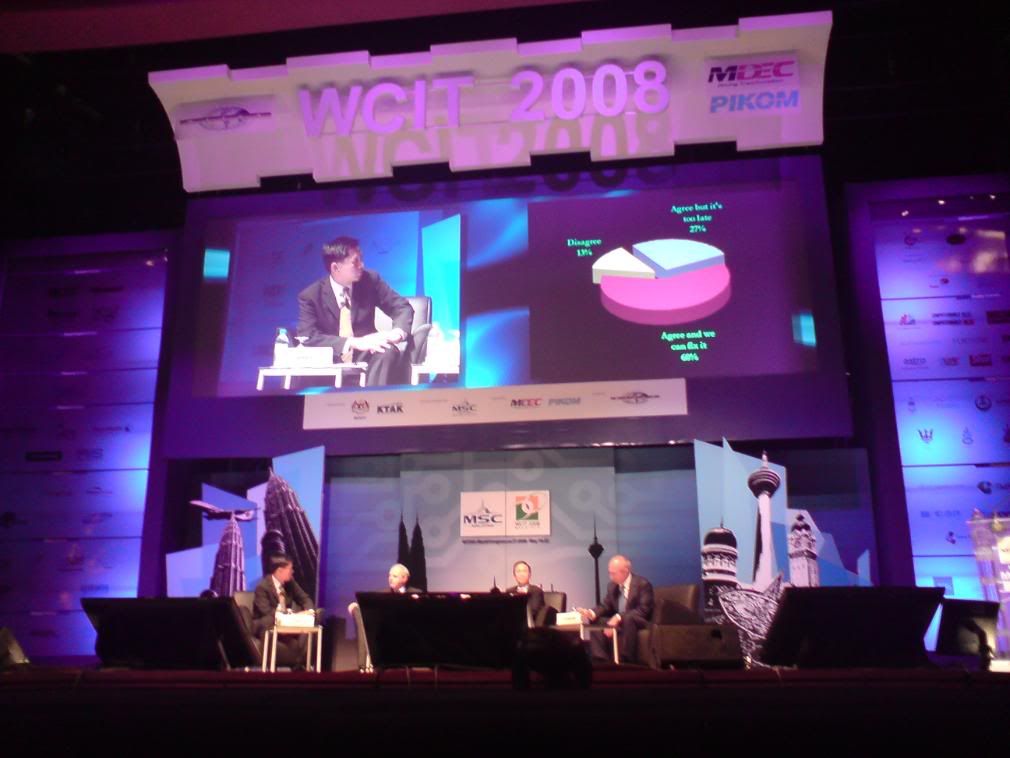
So I went looking for some data. What does this tell you? Well, it did make me go hmmmm. We are actually seeing a dip in the energy consumption per capita in North and South America, albeit from a relatively high level. Delving deeper into North America, Canada and Mexico are showing an increase while, very surprisingly, USA is dipping down and decreasing. How curious. 40 countries out of 134 countries actually showed a dip in energy consumption between 2000 and 2003. Some of them were obviously banana republics which were facing economic downturns such as Zimbabwe, or contractions such as Argentina, Ivory Coast, Bolivia, Eritrea, etc.
But what explains this reduction for countries as varied as Belgium, Brazil, Australia, Chile, Japan, New Zealand, Singapore, UAE, United Kingdom and USA? Can it be that despite increasing populations, their energy efficiency is improving? Dont take my word for it, check out the data. It is from the IEA even, so would be ok as well. Population information from the United Nations.
The next topic was the most interesting one, so I will put up another dedicated post for it. Came out to grab a coffee before going back in and saw that the sky was cloudy, the KL Tower was nearly hidden under clouds. Unfortunately, all the photographs with the top of the tower hidden did not come out, but hope you can make out the onion dome in the back being hazy in the mist.
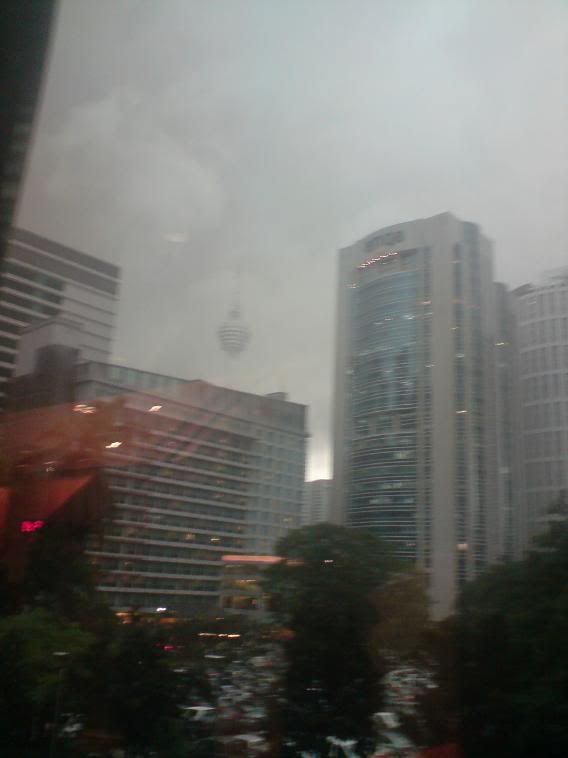
No comments:
Post a Comment